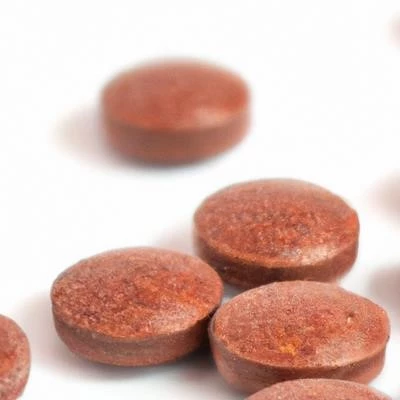Introduction
Actigall (ursodiol) is a prescribed medication used for dissolving and preventing cholesterol gallstones, as well as in the treatment of primary biliary cirrhosis. Common side effects may include rash, itching, nausea, and stomach pain, while serious side effects can include allergic reactions. The medication works by reducing cholesterol content in bile and bile stones, aiding in preventing stone formation and decreasing toxic bile acid levels. Ursodiol can be prescribed for various medical conditions and is typically taken orally, with dosages tailored to individual patients’ needs.
Overview of Actigall (Ursodiol) for Gallstone Treatment
Actigall (ursodiol) is a medication primarily used for dissolving and preventing cholesterol gallstones and treating primary biliary cirrhosis. It is available under various brand names such as Urso 250 and Urso Forte. The medication works by lowering the cholesterol content in bile, aiding in the dissolution of gallstones. Actigall is typically prescribed in specific dosages tailored to individual patient needs and is often accompanied by regular ultrasound monitoring to assess its effectiveness in gallstone treatment; Additionally, Actigall may be used to prevent gallstones in individuals undergoing rapid weight loss programs.
Benefits of Actigall
Actigall (ursodiol) offers several benefits in gallstone treatment, including its effectiveness in dissolving cholesterol gallstones and preventing new gallstone formation during rapid weight loss. The medication works by reducing cholesterol content in bile and bile stones, aiding in the dissolution of existing gallstones. Actigall is prescribed to help manage gallstone-related symptoms and prevent complications associated with gallstone formation. Additionally, Actigall is utilized in the treatment of primary biliary cirrhosis, providing patients with a comprehensive therapeutic approach for these conditions.
Overview of Actigall (Ursodiol) for Gallstone Treatment
Actigall (ursodiol) is a prescription medication primarily used for dissolving and preventing cholesterol gallstones and treating primary biliary cirrhosis. It works by lowering the cholesterol content in bile, facilitating the dissolution of gallstones. Actigall may be prescribed under various brand names like Urso 250 and Urso Forte. The drug is typically administered orally in tailored dosages and is often accompanied by regular ultrasound monitoring to evaluate its efficacy in gallstone treatment. Moreover, Actigall can also aid in preventing gallstone formation during rapid weight loss programs.
Prevention of Gallstone Formation during Rapid Weight Loss
Actigall (ursodiol) is known for its role in preventing the formation of new gallstones in individuals undergoing rapid weight loss programs. By reducing the cholesterol content in bile and bile stones, Actigall helps in inhibiting the development of gallstones during periods of significant weight reduction. This preventive effect is particularly beneficial for individuals at risk of gallstone formation due to fast weight loss, providing a proactive approach to managing potential gallstone complications.
Side Effects of Actigall
Actigall (ursodiol) may cause both common and serious side effects. Common side effects can include rash, itching, nausea, vomiting, stomach pain, diarrhea, constipation, back pain, and hair loss. On the other hand, serious side effects may involve allergic reactions and a decrease in white blood cell concentration. It is essential to be aware of these potential side effects and consult a healthcare provider if any adverse reactions occur while using Actigall for gallstone treatment.
Common Side Effects
Actigall (ursodiol) may lead to common side effects such as rash, itching, nausea, vomiting, stomach pain, diarrhea, constipation, back pain, and hair loss. These side effects are typically manageable and may subside as the body adjusts to the medication. It is important to monitor and report any persistent or bothersome side effects to your healthcare provider to ensure appropriate management and continued effectiveness of Actigall in gallstone treatment.
Serious Side Effects and Allergic Reactions
Among the serious side effects associated with Actigall (ursodiol) are allergic reactions and a decrease in white blood cell concentration. Allergic reactions may manifest as severe rash, itching, swelling, dizziness, difficulty breathing, and chest tightness. It is crucial to seek immediate medical attention if any signs of a severe allergic reaction occur while using Actigall. Additionally, a reduction in white blood cells can impact the body’s immune system function, necessitating prompt medical evaluation and monitoring.
Actigall (ursodiol) is typically prescribed for the treatment of gallstones at a recommended dosage of 8 ⏤ 10 mg/kg/day, administered in 2 or 3 divided doses. Regular ultrasound imaging of the gallbladder should be conducted at 6-month intervals during the initial year of Actigall therapy to monitor the response to gallstone dissolution. Consult with a healthcare provider to ensure the appropriate dosage and monitoring plan tailored to your specific condition and response to treatment.
Recommended Dosage for Gallstone Treatment
For the treatment of radiolucent gallbladder stones, a commonly recommended dosage of Actigall (ursodiol) is 8 ⎯ 10 mg/kg/day, divided into 2 or 3 doses. To monitor the response to gallstone dissolution, ultrasound imaging of the gallbladder should be obtained at 6-month intervals during the initial year of Actigall therapy. It is essential to adhere to the prescribed dosage and monitoring schedule outlined by your healthcare provider for optimal gallstone treatment outcomes.
Monitoring Gallstone Response with Ultrasound Imaging
Actigall (ursodiol) therapy for gallstone treatment often involves monitoring the response to treatment using ultrasound imaging of the gallbladder at 6-month intervals during the initial year of therapy. This imaging allows healthcare providers to assess the effectiveness of Actigall in dissolving gallstones and to make adjustments to the treatment plan as needed based on the observed gallstone response. Regular ultrasound monitoring is an essential component of managing gallstone treatment with Actigall to ensure optimal outcomes.

Mechanism of Action
Actigall (ursodiol) operates by lowering the cholesterol content in bile and bile stones, effectively dissolving and preventing gallstones. This process involves reducing cholesterol production and secretion from the liver, as well as diminishing the reabsorption of cholesterol by the intestines. By impacting these mechanisms, Actigall aids in the dissolution of cholesterol gallstones and helps prevent their formation, providing a therapeutic approach to managing gallstone-related conditions.
Usage and Dosage
Actigall (ursodiol) is typically prescribed for the treatment of gallstones at a recommended dosage of 8 ⎯ 10 mg/kg/day, administered in 2 or 3 divided doses. Regular ultrasound imaging of the gallbladder should be conducted at 6-month intervals during the initial year of Actigall therapy to monitor the response to gallstone dissolution. Consult with a healthcare provider to ensure the appropriate dosage and monitoring plan tailored to your specific condition and response to treatment.
Other Medical Uses of Ursodiol
Ursodiol, commonly known as Actigall, is utilized not only for the treatment of gallstones but also for managing primary biliary cirrhosis. The medication’s mechanism involves preventing and dissolving certain types of gallstones, especially those composed of cholesterol. Additionally, Ursodiol aids in lowering cholesterol levels in bile and bile stones, contributing to the prevention of gallstone formation, particularly in patients who are losing weight rapidly. It is crucial to follow the prescribed dosage and treatment regimen to achieve optimal outcomes when using Ursodiol in various medical conditions.
Treatment of Primary Biliary Cirrhosis
Actigall (ursodiol) is also employed in the treatment of primary biliary cirrhosis, an autoimmune liver disease that results in the progressive damage of the bile ducts within the liver. By providing therapeutic benefits in managing primary biliary cirrhosis, Actigall aids in addressing the associated complications and improving liver function. The medication plays a crucial role in the comprehensive care and treatment of individuals with this specific liver condition.
Before taking Actigall (ursodiol), inform your healthcare provider if you have any allergies, especially to ursodiol or bile acids. It is important to disclose all medications, vitamins, and herbal products you are currently taking to prevent potential interactions. Special precautions include avoiding ursodiol in the presence of certain medical conditions like bile duct blockage or specific types of gallstones. Additionally, seek medical advice if you have had gastrointestinal surgery or if you are pregnant, planning to become pregnant, or breastfeeding.
Special Precautions and Considerations
Before taking Actigall (ursodiol), it is crucial to inform your healthcare provider about any allergies, especially to ursodiol or bile acids. Additionally, disclose all medications, vitamins, and herbal products you are currently using to prevent potential interactions. Special precautions include avoiding ursodiol in the presence of specific medical conditions like bile duct blockage or certain types of gallstones. It is also important to seek medical advice if you have had gastrointestinal surgery, are pregnant, planning pregnancy, or breastfeeding to ensure safe and effective use of Actigall.
Interactions with Other Medications
Prior to taking Ursodiol (Actigall), it is essential to inform your healthcare provider about any medications, vitamins, supplements, or herbal products you are currently using to prevent potential interactions. Some interactions to be cautious of include antacids containing aluminum which may interact with Ursodiol. It is important to discuss all medications and supplements with your healthcare provider to ensure the safe and effective use of Ursodiol in gallstone treatment and other medical conditions.
Storage and Disposal Information
When storing Ursodiol (Actigall), keep it in the original container tightly closed and out of children’s reach. Store at room temperature away from excess heat and moisture. Do not store in the bathroom; If you need to dispose of the medication, do not flush it down the toilet. Instead, consider a medicine take-back program to ensure safe disposal and prevent accidental ingestion. Consult your pharmacist or local waste disposal facility for information on available take-back programs in your area.
Proper Storage Guidelines for Ursodiol
When storing Ursodiol (Actigall), it is essential to keep it in the original container tightly closed and out of reach of children. Ensure to store the medication at room temperature, away from excess heat and moisture, and avoid storing it in the bathroom. If you need to dispose of Ursodiol, do not flush it down the toilet. Consider utilizing a medicine take-back program for safe disposal and preventing accidental ingestion. Consult your pharmacist or local waste disposal facility for information on available take-back programs in your area.
Disposal Recommendations for Unused Medication
It is crucial to handle the disposal of unused Ursodiol (Actigall) properly to prevent unintentional ingestion. Avoid flushing the medication down the toilet or throwing it in the trash. Opt for a medicine take-back program to ensure safe disposal. Contact your pharmacist or local waste disposal facility for guidance on available take-back programs in your area. Keeping unused medication out of reach of children and pets is also essential for safety.
Actigall (ursodiol) is a vital medication used in the dissolution and prevention of cholesterol gallstones, along with the treatment of primary biliary cirrhosis. With its mechanism of reducing cholesterol in bile and bile stones, Actigall serves as an effective therapeutic option for individuals with gallstone-related conditions. By following proper usage, monitoring gallstone response, and adhering to storage and disposal guidelines, Actigall can contribute significantly to improving the quality of life for patients managing gallstone issues.

Leave a Reply